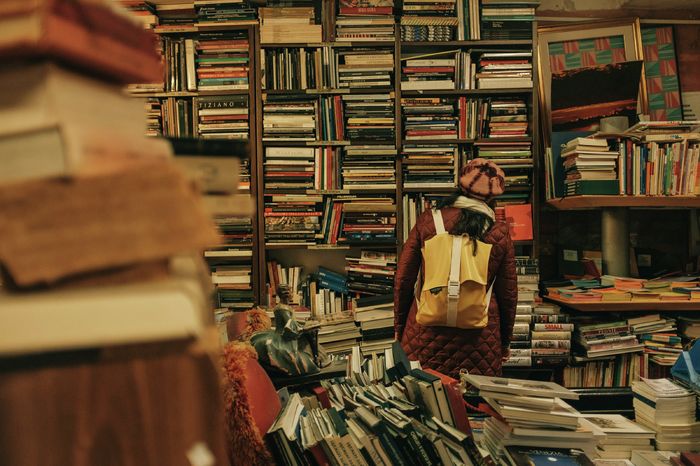Why we should be reading newspapers
Cambridge students have a wealth of newspapers at their fingertips, and it’s time we made the most of them, argues Tom Ainscough

In the 1950s, nearly everyone got their news from either the newspapers or the radio. Now, the radio is something only found at the front of the car, and newspapers are just another miscellaneous item in the local corner shop. With the rise of the telly and, later, the internet, the popularity of newspapers has sunk.
Cambridge students, though, have almost all newspapers at their fingertips. Granted, only the online versions, but broadsheets were unwieldy anyway. Many of them are free: BBC News, The Guardian, ITV News, The Independent. Many more are provided by the university: The Financial Times, The Economist, Times Higher Education. There are plenty of choices, and we have good reasons to make them.
“Cambridge students, though, have almost all newspapers at their fingertips”
The first of these reasons is the astounding variety of articles to choose from. After noting all the main headlines presented on the same initial page, you can explore any number of these further, or move on to the dozens of other sections on offer. The Independent, for example, has at least sixty sections in its online newspaper. The bio-natsci might head to ‘science’, and the music student to, perhaps, ‘music’. More seriously, maybe you would like to read opinions on a specific long-term issue you really care about, like the housing crisis or reforming the NHS. Ultimately, readers stay informed on affairs as a whole, while having the opportunity to read further on their interests.
This choice and variety is just not there on the telly, which is how the country at large learns about topical affairs. Instead, viewers must sit through each story one by one in order to hear all the headlines. This can be unnecessary when you’ve heard them through conversation, or if you don’t have time. It can also be excessively demoralising. For example, while I had great sympathy for the murdered delivery driver, and the man killed by an XL bully dog, which were reported in succession during my most recent viewing of the News at Ten, I wouldn’t have delved into the stories behind these headlines in a newspaper. This is not to mention my discomfort at then being force-fed football results.
Reading just a few of the many papers we have access to also reduces the chance of confirmation bias. It allows readers to see multiple sides of a story – sometimes even different stories entirely. For instance, while ITV news reported on Sunday (1st) about Charles III hosting the prime minister in Balmoral, an equivalent article was nowhere to be seen in The Guardian.
“Most people know that algorithms can help to affirm false beliefs”
Admittedly, choice of articles and variety of publishers is also there on social media. However, there is not the fact-checking to come with it. Despite the fact that 57% of 18-24 year olds end up receiving the majority of their news from their socials, most people know that algorithms can help to affirm false beliefs. They know that ‘news’ videos, in the context of TikTok and Instagram scrolling, shape-shift between the political, factual, radical, satirical, and absurd. If anything, we know the dangers of social media ‘news’ from its role in recent rioting, which, for the first time, resulted in criminal convictions.
Some might rightly point out that not all news on social media is untrustworthy but, even then, the hyper-stimulative nature of the platforms still makes newspapers a better option. News accounts have to compete with millions of other posts for attention. I find it all too easy to condemn as boring a stray news story in my Instagram feed and send it travelling upwards. There will be no guilt; I will already be contentedly looking at a meme.
By contrast, setting aside some time to read online newspapers provides a routine for news intake. This is particularly valuable as a student, where it is easy to be consumed by the Cambridge bubble and bypass the news entirely. Whether it’s with your morning bowl of cereal, or in breaks between lectures (newspapers are so modern they have apps!), each day will have something which feels productive in it, essay started or not.
Students at Cambridge, then, should take advantage of their access to online newspapers. We get to experience the variety of social media, coupled with the fact-checked protections of television, all in one place. Need I mention the crossword. Let’s not allow the redundancy of newspapers just yet.
 Features / Should I stay or should I go? Cambridge students and alumni reflect on how their memories stay with them15 December 2025
Features / Should I stay or should I go? Cambridge students and alumni reflect on how their memories stay with them15 December 2025 News / Cambridge study finds students learn better with notes than AI13 December 2025
News / Cambridge study finds students learn better with notes than AI13 December 2025 News / Dons warn PM about Vet School closure16 December 2025
News / Dons warn PM about Vet School closure16 December 2025 Comment / The magic of an eight-week term15 December 2025
Comment / The magic of an eight-week term15 December 2025 News / News In Brief: Michaelmas marriages, monogamous mammals, and messaging manipulation15 December 2025
News / News In Brief: Michaelmas marriages, monogamous mammals, and messaging manipulation15 December 2025









